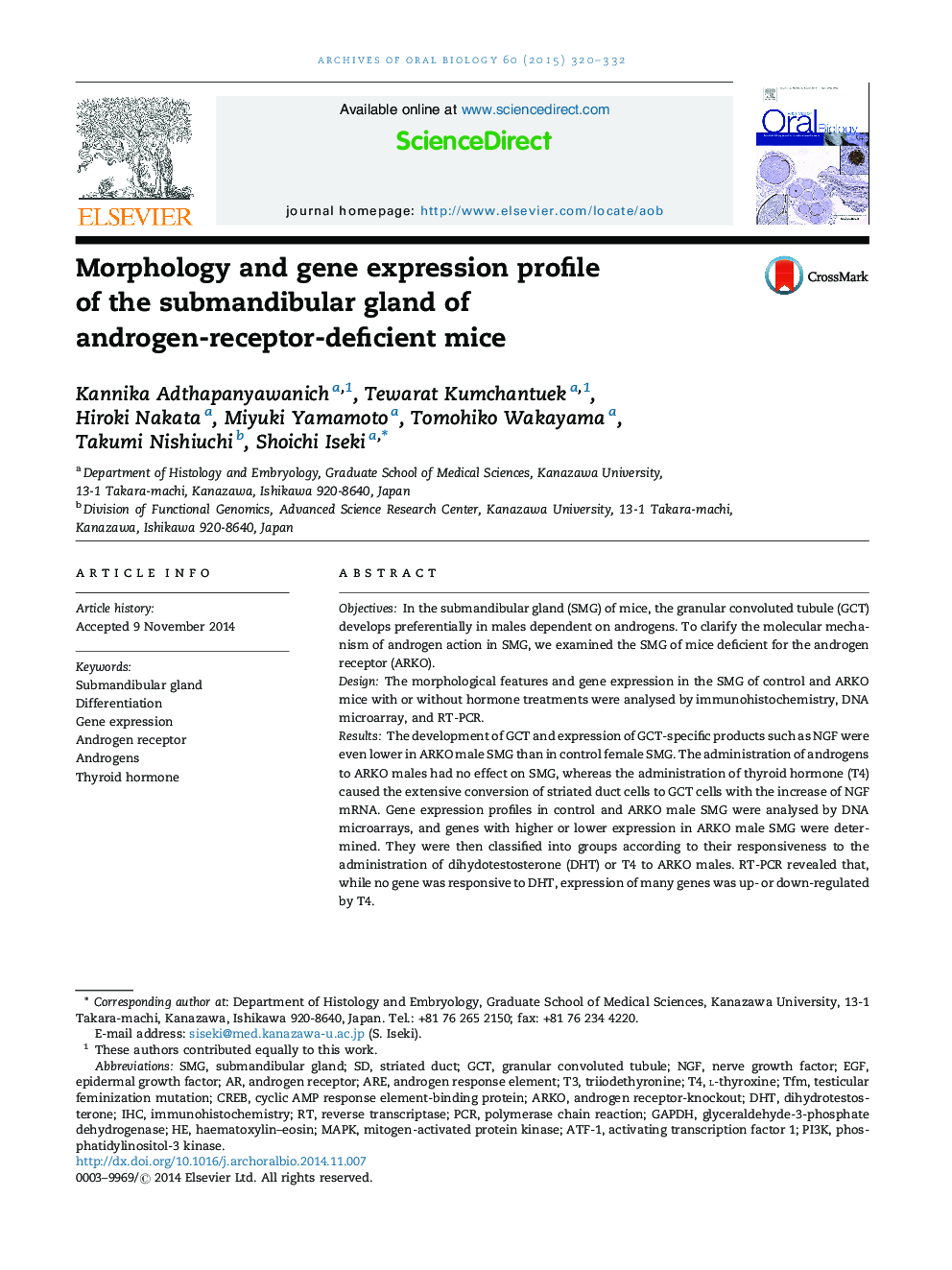| کد مقاله | کد نشریه | سال انتشار | مقاله انگلیسی | نسخه تمام متن |
|---|---|---|---|---|
| 3120838 | 1583303 | 2015 | 13 صفحه PDF | دانلود رایگان |
• Submandibular gland (SMG) of androgen receptor-KO mouse (ARKO) was investigated.
• ARKO SMG has impaired development of granular convoluted tubules.
• Such impairment is ameliorated by thyroid hormone but not by androgens.
• Genes with different expression levels between control and ARKO SMG are listed.
• Many of these genes respond to thyroid hormone but not to androgens in ARKO SMG.
ObjectivesIn the submandibular gland (SMG) of mice, the granular convoluted tubule (GCT) develops preferentially in males dependent on androgens. To clarify the molecular mechanism of androgen action in SMG, we examined the SMG of mice deficient for the androgen receptor (ARKO).DesignThe morphological features and gene expression in the SMG of control and ARKO mice with or without hormone treatments were analysed by immunohistochemistry, DNA microarray, and RT-PCR.ResultsThe development of GCT and expression of GCT-specific products such as NGF were even lower in ARKO male SMG than in control female SMG. The administration of androgens to ARKO males had no effect on SMG, whereas the administration of thyroid hormone (T4) caused the extensive conversion of striated duct cells to GCT cells with the increase of NGF mRNA. Gene expression profiles in control and ARKO male SMG were analysed by DNA microarrays, and genes with higher or lower expression in ARKO male SMG were determined. They were then classified into groups according to their responsiveness to the administration of dihydotestosterone (DHT) or T4 to ARKO males. RT-PCR revealed that, while no gene was responsive to DHT, expression of many genes was up- or down-regulated by T4.ConclusionsThese results confirmed that GCT cell differentiation induced by androgens is dependent on the classical androgen receptor (AR), whereas that by T4 is independent of AR. Differential reactivity of genes to androgens and thyroid hormone in ARKO mice may shed light on the mechanism of androgen action in the SMG.
Journal: Archives of Oral Biology - Volume 60, Issue 2, February 2015, Pages 320–332
